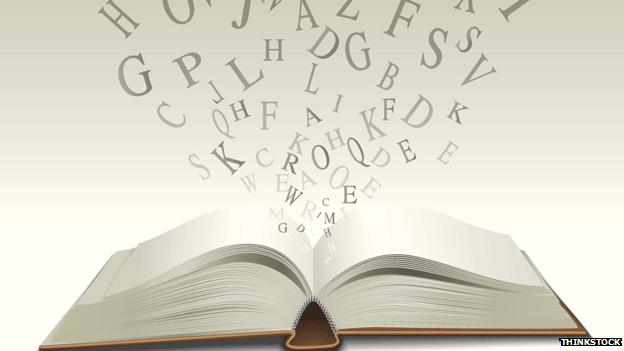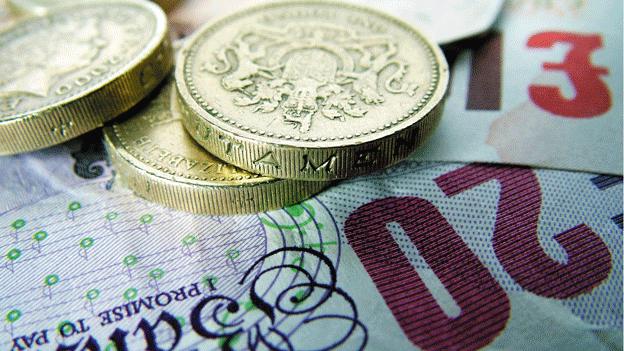Scotland Decides: Mandate with destiny
- Published

Picking up my dictionary and looking for the definition of the word "mandate", I found this sentence: "Political authority supposed to be given by electors to [a party in] parliament".
It also gave an alternative legal definition that "someone given a mandate does so with indemnity against loss".
This word is the one that Alex Salmond has brought to the forefront of his argument for independence, notably in his clash with Alistair Darling on Monday night.
Under pressure once more on what happens if he doesn't get what he wants on a formal currency alliance with the rest of the UK (rUK), the first minister replied that he's seeking a "mandate to negotiate".
I doubt he has that legal definition in mind, though he also made it clearer than ever that if he doesn't get what he's after, he won't be taking on a share of UK government debt.
And that would add more than £4bn in annual costs to rUK taxpayers.

Do you have questions?

In a series running up to polling day, I and my fellow BBC colleagues are looking at the major referendum questions and by using statistics, analysis and expert views shining a light on some of the possible answers.
The issues we have looked at so far include Trident, Scottish economic growth, broadcasting, population, health, UK debt and how much Scotland sells to the rest of the UK.

The White Paper, external states: "An independent Scotland will be able to decide our currency and the arrangements for monetary policy."
If this is about a mandate, it seems the words "subject to negotiation" are implied.
My esteemed colleague Brian Taylor has also commented on this issue of a mandate. He raises the question of whether the answer "Yes" to the question: "Should Scotland be an independent country?" is a mandate for independence generally, or for the White Paper specifically.
Polling evidence
The question puzzling me is - what about the mandate for those on the other side of the negotiating table?
It's worth bearing in mind that, after a "Yes" vote on 18 September, a lot of Westminster's energies will be directed towards fighting the general election for next May.

So, what would voters in Wales, Northern Ireland and England mandate their political representatives to do?
Some polling evidence has suggested that English and Welsh people are content to let Scots continue use of the pound sterling, but other evidence suggests, external they should not be allowed to have joint control over it.
A recently-published survey suggested that, down south, the English want to take a harder line on Scotland if there's a "Yes" vote, and also if there's a "No" majority. The Welsh would be more conciliatory, it found.
English opposition to Scotland sharing control of the pound was at 53%, according to the survey for the Future of the UK and Scotland project, with 23% in favour.
And as a straw in the wind, what about UKIP leader Nigel Farage's comments in a recent BBC documentary on the implications of Scottish independence for the rest of the UK?


A referendum on whether Scotland should become independent is to take place
People resident in Scotland will be able to take part in the vote, answering the "yes/no" question: "Should Scotland be an independent country?"
The referendum will take place on Thursday, 18 September 2014
Go to the BBC's Scotland Decides page for analysis, background and explainers on the independence debate.

He said: "The Scottish question will be a very big part in the general election following a 'yes' vote.
"There will be a bidding war amongst certainly the Conservative Party and I suspect my party too.
"We want the Union. But if they [the Scots] said 'goodbye' to us, I suspect we would also be calling for quite tough separation terms."
Now, Nigel Farage isn't likely to be in Downing Street next May. But he's already having an effect on other party leaders who hope to be.
So perhaps it's worth a closer look at what the rUK might do after 18 September......
What if Scotland says goodbye?

The first thing to say is: yet again, we don't know. There aren't answers. There are only conflicting arguments. The Yes Scotland campaign has said that opposition to a currency deal is "bluff and bluster".
It's also claimed by Alex Salmond and his followers that it's in the interests not only of Scotland but also of the rUK that a deal should be done.
Well, let's park the question of Scotland's interests for now, because - right or wrong - Alex Salmond would be pressing his view in those talks.
On the other side of the negotiating table, where's the evidence that it's in the interests of the rUK?
The key reasons given in the White Paper come from experts on the Fiscal Commission, set up by the Scottish government. It says rUK would have Scotland as its second biggest trading partner, after the USA. A common currency would ease complex supply chains, and the flow of workers across the border.
It points to similar economic cycles, and similarities between the Scottish and rUK economies, including productivity. (That said, Scottish government policy is to make Scotland's productivity levels accelerate past its southern neighbour, and it hopes for a new oil bonanza, which could see further divergence.)
It has since been argued that the price of not doing a deal would be hundreds of millions of pounds for rUK businesses in transaction costs, and that the explicit threat that if this currency "asset" isn't to be shared, then neither should government debt.
It's further been argued that a change of currency (not only no formal monetary union, but no informal use of sterling in Scotland) would leave the rUK having to find more foreign exchange to purchase a much larger share of its oil and gas requirements.

What's the rUK case for not doing a formal deal on currency?

The Treasury in London considered this in one of its Scotland Analysis papers, external. As you might expect, it's slanted to make the case for a "No" vote.
Perhaps because it is addressed to Scotland and Scottish voters, it doesn't spell out the compromises that would be required of the rUK from a formal currency alliance.
What it does say is that it would mean "profound changes" for both the Scottish and UK economies: "But in the event of Scottish independence, the economic rationale for the continuing UK to agree to enter a formal sterling union with another state is not clear."
Far more consideration is given to the conditions that the rUK could be expected to place on an independent Scotland's finance ministry. As in the eurozone, this would involve limits to deficits and to debt.
But it argues that in contrast with the eurozone, the imbalance in size between the rUK and Scotland would mean more rUK exposure to risk from a Scottish economic crisis.
So it says the conditions that the rUK could be expected to impose on Scotland would be "more stringent and less symmetric" (that is, tougher, and more one-sided).
It concedes that the Scottish government's own Fiscal Commission has advised that an independent budget office would be required in Scotland, but then goes further, to say the rUK should demand oversight of Scottish taxation and spending plans.
"Regular monitoring... would be required, including some mechanism for intervention if fiscal risks to the stability of the currency union were to arise". If you wonder what intervention means, have a look at recent events in Athens, Madrid, Lisbon and Dublin.
It's worth noting from this Treasury paper that it sees no risk to Scottish finances from a crisis in the rUK finances. Hence, it doesn't even contemplate the possibility that Scotland might expect reciprocal rights to oversight and intervention if it doesn't like what the Chancellor of the Exchequer is doing.
And that seems to reflect the view from the Treasury. They rarely give much sign of a rUK negotiating position, beyond that on currency, because they've been trying to love-bomb Scots with the benefits of the Union. But if there were a "Yes", and if there were a U-turn from Westminster politicians and negotiations on currency got started, then they see themselves as being in a much stronger negotiating position.
From Westminster's point of view, it can already see the promises made in the White Paper which depend on a favourable outcome from negotiations, including
a formal currency union
a friendly share-out of assets from military hardware to government buildings
a transfer of tax rights over oil and gas under Scottish waters
a smooth transition of tax collection
pensions and welfare payments over several years
maintenance of the elements of the energy markets that support Scotland's renewable ambitions
a deal on access to BBC programmes
support in getting fast-track membership of the European Union and NATO
....... and so on.
Bearing that in mind, if Scotland doesn't take on its share of government debt, it's not just the currency that could be off the negotiating table.

What about a 'No' vote?

The Yes Scotland side of the debate emphasises the risks from staying in the UK. They have raised fears about the future of the NHS and welfare reform, about continued inequality and poverty.
They raise doubts about the commitment of the pro-Union parties to deliver on their plans to enhance powers for devolved Holyrood. And Alistair Darling's difficulty in articulating those plans in Monday's debate is seen by the "Yes" campaign as vindication.
There's also the question of the Barnett Formula, by which Scottish government's block grant has been allocated for more than 30 years. Of course, there would be no block grant under independence.
But within the Union, the SNP is raising the risk that the formula could be reviewed, potentially losing Scotland billions of pounds per year, while the Welsh government is arguing that reform, on the basis of need, would hand it hundreds of millions extra.
For now, such a review is no-one's policy at Westminster. But going back to that "Future of the UK and Scotland" survey, there is surely a risk to Scotland after a "No" of a hardening of opinion in England.
That probably reflects growing awareness in England about higher spending levels in Scotland, often choosing to ignore the data showing that Scotland's tax contribution is similarly high.
For 50 years, the Secretary of State for Scotland has sat in the UK Cabinet issuing explicit or implicit threats that if Scotland doesn't get its own way on policy or spending, there will be a price to pay in nationalist votes and the threat of independence.
If there's a "No", future use of that threat is going to ring rather hollow. It's another part of the consensus between "Yes" and "No" that, whatever the result on the morning of 19 September, things will never be quite the same again.
A brief note about a long absence: I've not been working since April, due to health problems. I hope I'm on the mend, though my return to work is frustratingly slow. To those who kept in touch during that period of online and radio silence, thank you.